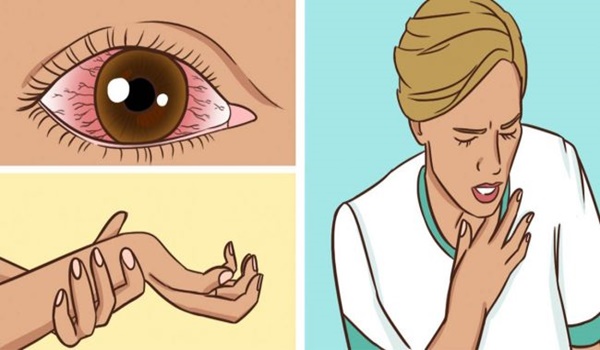Does your roof leak? How much attention do you pay to the dampness in your home? This can easily lead to serious health problems. Toxic mold has a detrimental effect on human health, causing a wide range of symptoms like rashes, fatigue and vertigo.
Unfortunately, many people misinterpret these symptoms because they aren’t even aware of the toxic mold exposure. Sufferers usually believe they have a cold, flu or allergy. Dr. Jill explains that mold, mycotoxins and other air pollutants contribute to 50% of diseases. It’s really important that you determine where does mold come from in order to prevent the development of severe symptoms.
Affected areas
Mold develops everywhere, and it doesn’t make any difference between fabric, wood or leather. You can even see it on sheetrock and insulation. It needs moisture and oxygen, which is why it’s commonly found in the following areas:
— Bathrooms and kitchens (under sinks and under refrigerators, dishwashers and washing machines
— Leaky roofs
— Windows (condensation spot)
— Basement and other areas with high humidity
How to spot it?
The first thing you will notice is the musty odor, and then look for bowed floorborards, discolored carpets,water stains on walls and black/white spots, as explained by Dr. Mercola.
Types of mold
Mold grows in areas exposed to water damage. Dr. Mercola lists the most common types of mold that grow indoors:
1. Alternaria
It’s found in the upper respiratory tract and may trigger allergy-like symptoms.
2. Aspergillus
It grows in warm and damp climate, and is considered a common occupant of house dust. Aspergillus releases mycotoxins, triggering the development of lung infections.
3. Cladosporium
Grows on textile, wood and other porous materials exposed to moisture. It causes hay fever and asthma-like symptoms.
4. Penicillium
It’s found on wallpaper, fabrics, carpet and fiber glass duct insulation. Penicillium causes allergies and asthma. Some species release mycotoxins, and penicillin is the most common.
5. Stachybotrys
It’s dangerous and toxic. Black mold releases mycotoxins and may lead to serious breathing difficulties and bleeding in lungs. It’s not really common in homes, but may grow on wood and paper. It doesn’t grow on concrete linoleum or tile.
Symptoms
Dr. Jill listed several symptoms you should be aware of:
- Fatigue and weakness
- Headache, light sensitivity
- Poor memory, difficult word finding
- Difficulty concentration
- Morning stiffness, joint pain
- Unusual skin sensations, tingling and numbness
- Shortness of breath, sinus congestion or chronic cough
- Appetite swings, body temperature regulation,
- Increased urinary frequency or increased thirst
- Red eyes, blurred vision, sweats, mood swings, sharp pains
- Abdominal pain, diarrhea, bloating
- Tearing, disorientation, metallic taste in mouth
- Static shocks
- Vertigo, feeling lightheaded
If you still can’t tell if your exposed to toxic mold, go through the following questions:
1. Are there any musty odors?
2. Are there any discolored air vents or ceiling tiles? Is there any discoloration in your home?
3. Was your home flooded recently?
4. Are there any leaks in your roof?
5. Do you deal with shortness of breath?
6. Are you diagnosed with recurring sinus infections, respiratory infections of coughing?
7. Do you have any flu-like symptoms?
8. Are your symptoms worse on rainy days?
9. How often do you deal with a headache?
10. Are you tired and are there any rashes on your skin?
Proper treatment
First, stay away from moldy area.
Invest in high-quality air purifier to control the moisture in your home.
Clean moldy surfaces.
Call a professional to remove the mold if the patch is too big and your symptoms are serious. You should definitely call a professional if the mold is black.
Consult a doctor if you have any of the symptoms. You can do a few tests and receive proper treatment. Try not to set up a diagnose on your own. Consult a professional.


